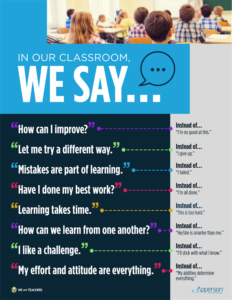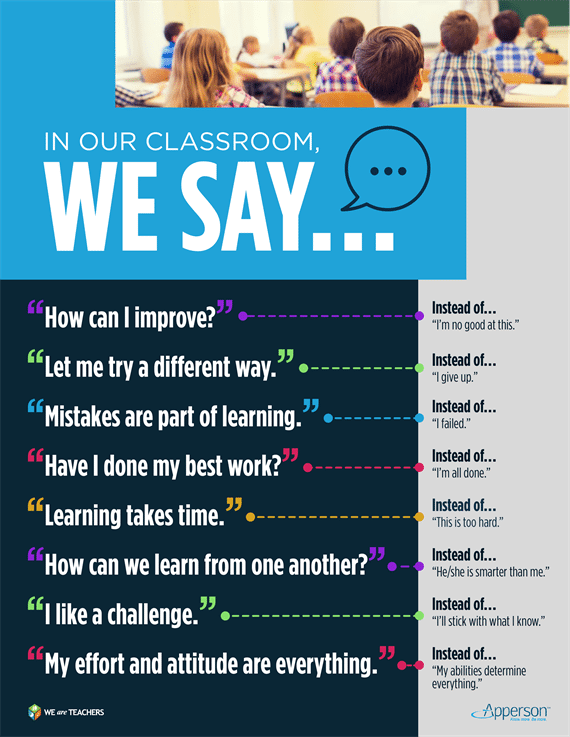Fostering a Growth Mindset
I remember extending my right hand up in the air and waving it feverishly. I thought, today “I had enough” after being ignored by my fourth-grade teacher too many times, today was the day I was going to speak up. Daily, I eagerly raised my hand to answer a question only to be overlooked (consider that this is my fourth-grade perception of things). I would watch her peer out into the classroom and scan all the buzzing hands, including mine, hoping she’d pick me. Ugh! Again I thought, “see she only picks on the ones that get answers right all the time.”
I shouted, “you keep overlooking my hand CAN YOU please pick me.” She sensed my anger and asked me to step out of the classroom so that we can talk. In the hallway, she asked “Tiana what’s wrong?”. I responded with sass but also with personal awareness, I told her that “I know I get some of the answers wrong, but I get some right too, why don’t you pick on me more?”
When I was in college, I was a substitute teacher at my old elementary school. To my surprise I bumped into my fourth-grade teacher; she stilled taught fourth grade and was retiring soon. We chatted a bit. “Tiana things changed after our talk in the hallway.” She warmly grinned, “from then on you were a great student.” I think, our conversation helped her see that I wanted to be a great student.
This story points out that early on I understood the power of a growth mindset. Growth Mindset was coined by Carol Dweck, who studies perceptions about learning and intellect. She observed that people who feel that their intelligence can change and grow perform better versus people who think that their intelligence is fixed. At a very young age, I was ok with using my pencil eraser, falling off my bike, struggling to understand long division because I knew eventually with time, patience, and work I would finally get things right…that’s a growth mindset.
I bet you are wondering; how do you teach growth mindset. A few simple ways are by pointing out your own mistakes and shortcomings. Allow children to see that you get things wrong but let them see that you hunt for the right answer. Share stories from your childhood. Allow the story to reveal how you were feeling frustrated with something and was ready to give up, but you preserved. Honesty helps children see that even adults and parents once had a hard time but kept trying. Sharing your stories gives them new language that fosters resilience and the ability to overcome failure.
Check out the poster “ In our Classroom We Say”.


Tiana Brown is the Assistant Director of the Norwalk Housing Authority Learning Centers

